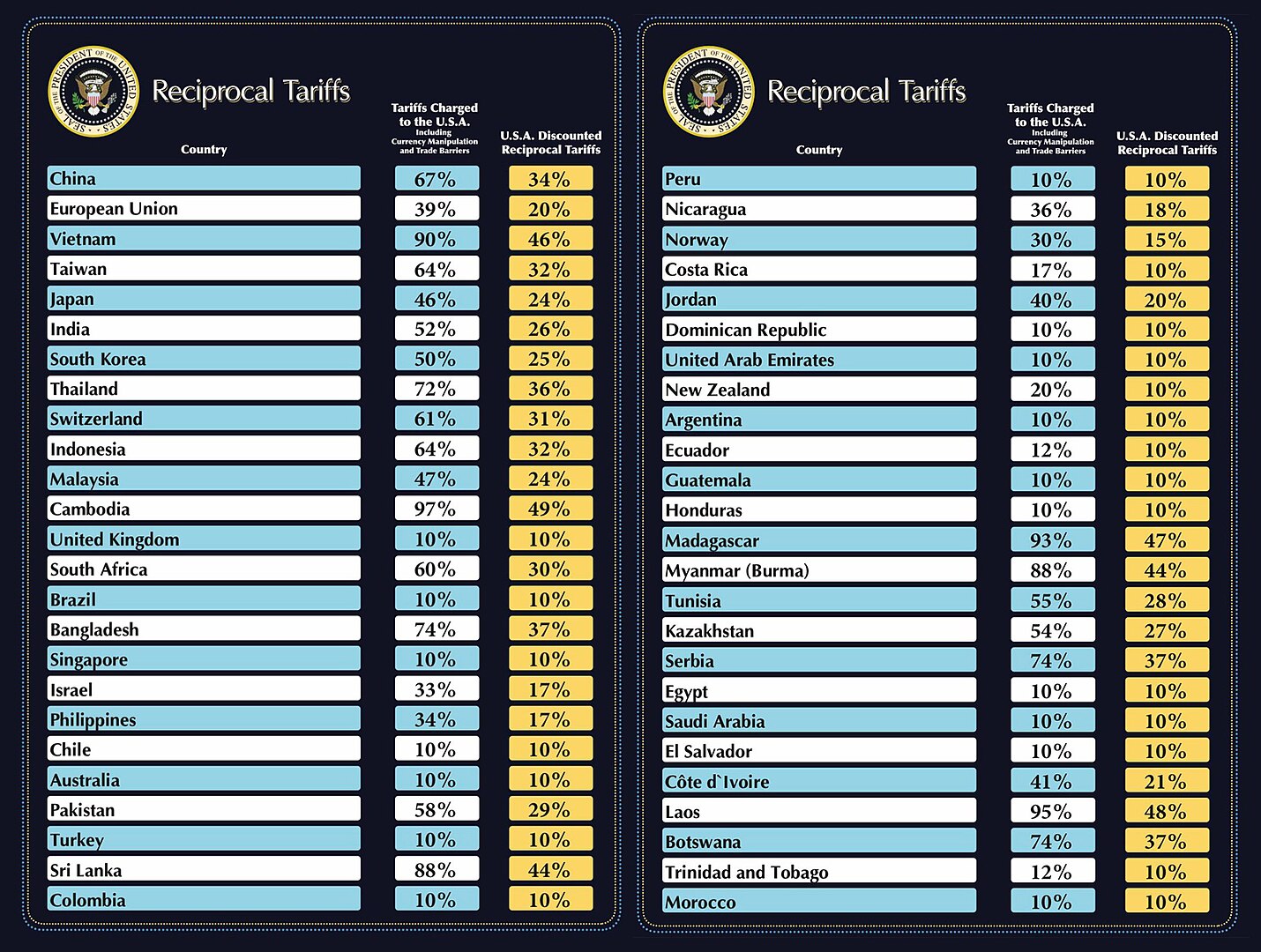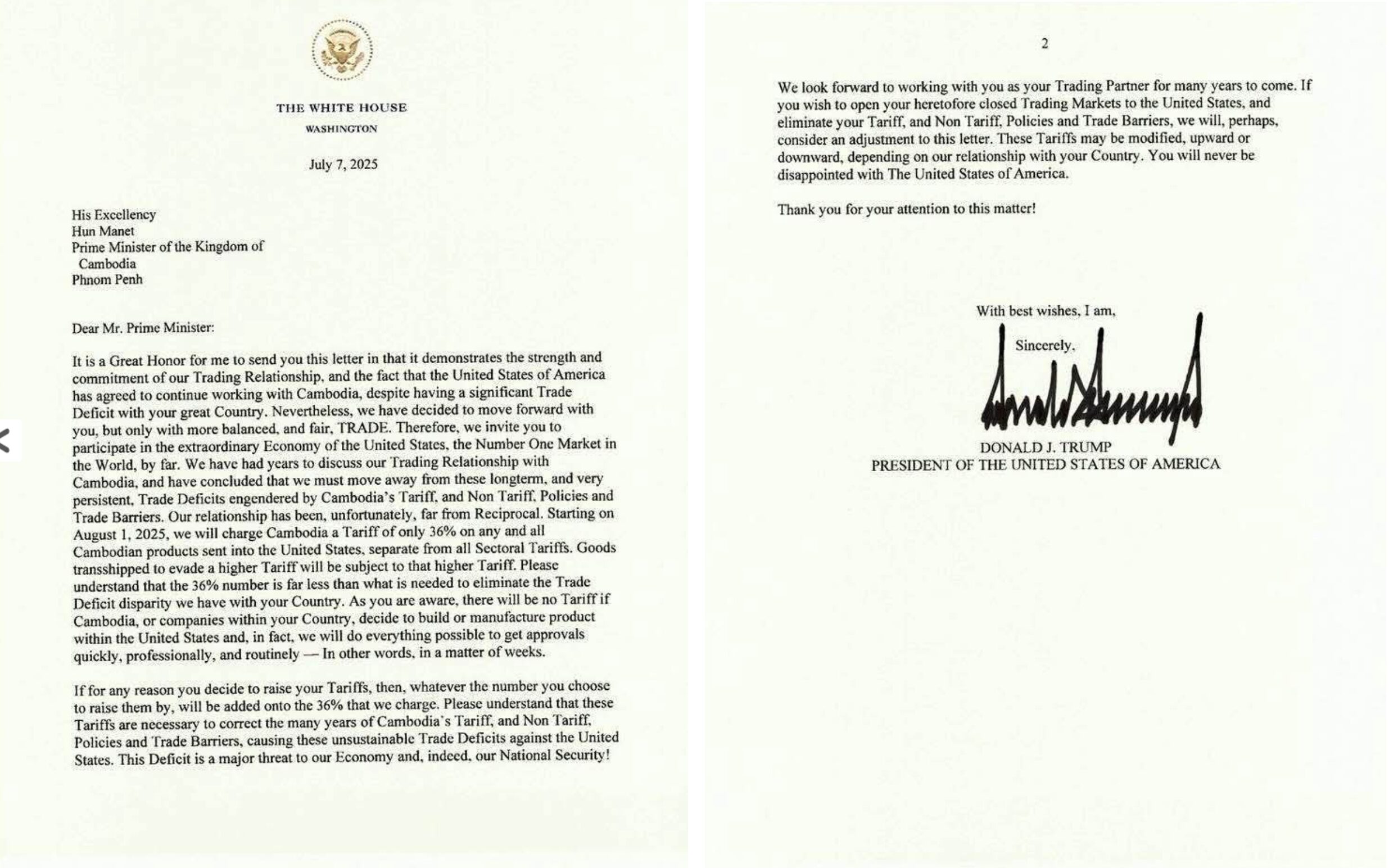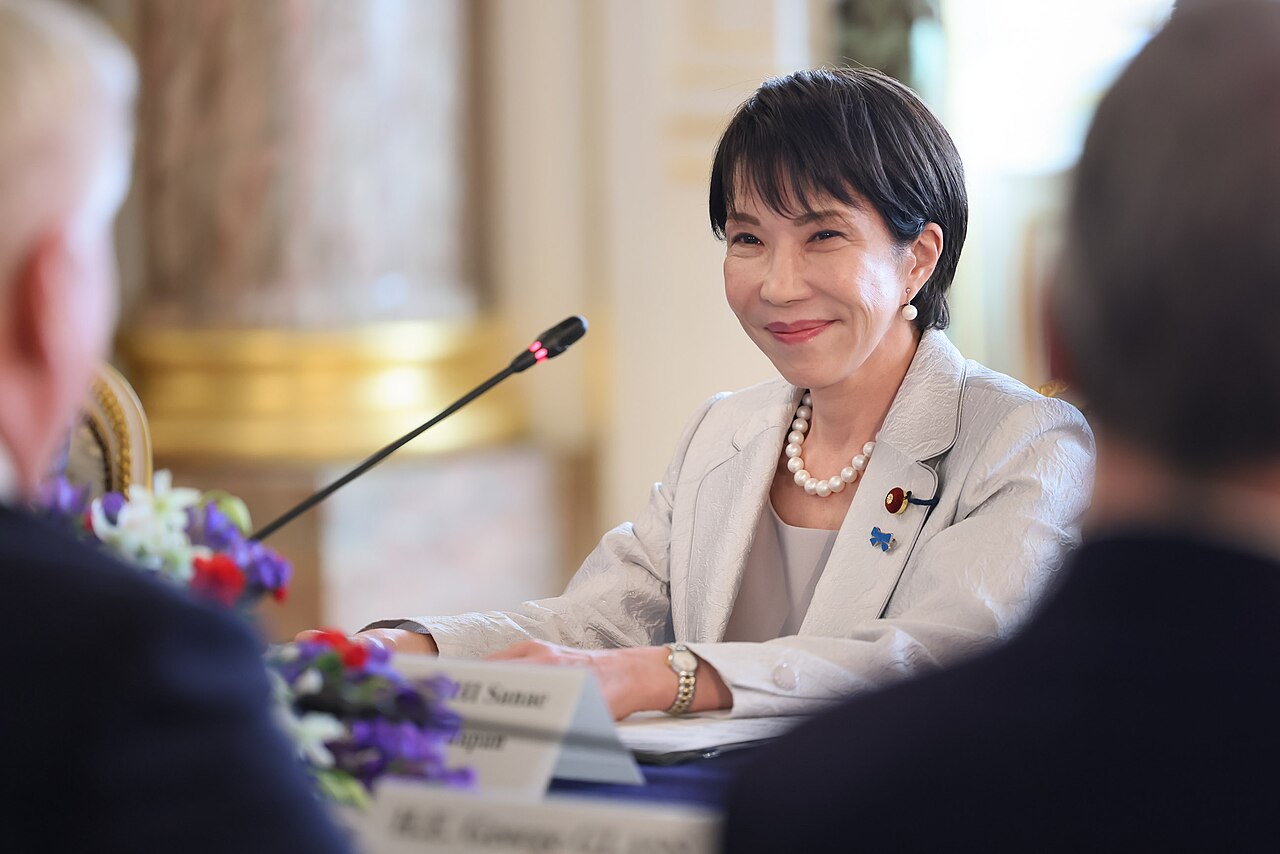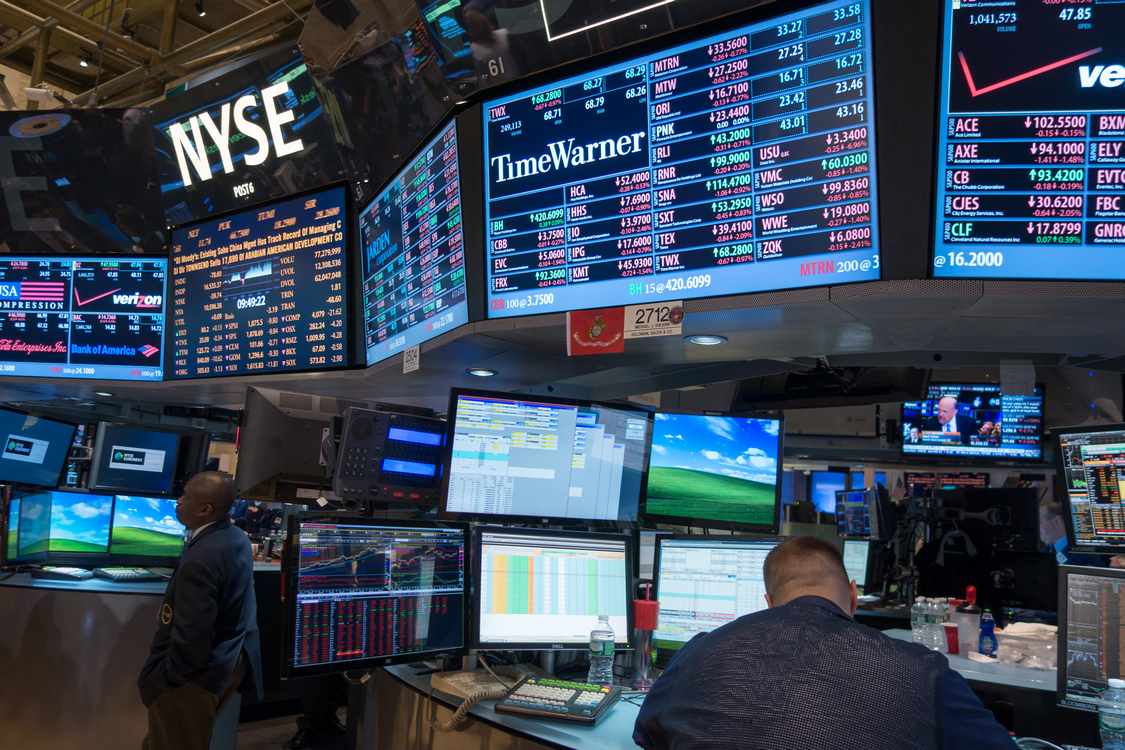Announced frameworks between the US and Southeast Asian nations seem to be materializing, alleviating fears that the high tariff rates would cause many of Washington’s regional trade partners to more closely align their export markets with China.
Having already agreed a deal with Vietnam in early July, announcements that Indonesia and Cambodia had agreed on frameworks that could materialize in new trade agreements deals recently.
South and Southeast Asian nations were set to see the highest tariff rates under President Trump’s new “Liberation Day” import taxes. Initial rates announced by the President in early April included 49% on Cambodia, 46% on Vietnam, 36% on Thailand, and 32% on Indonesia. US markets are critical for these nations’ exports, mostly in the garment and textile industries. According to the Trump Administration, these are lower than the tariff which each country in question charges for American imports, which in the case of Cambodia it alleges to be 97%.
Cambodia for example, set to receive the highest tariff rate, counts 24% of last year’s national GDP as products that were exported to America and the firms that manufacture them. The nation stands to lose more than any other should an agreement not be reached, but unlike Indonesia and Vietnam, the sticking points of any such an agreement have been vague or unreported.
“In this meeting, both sides reviewed and agreed on the draft Joint Statement on Framework for United States-Cambodia Agreement on Reciprocal Trade, which will be released to the public soon,” the government nevertheless stated recently.
The announcement came after Deputy Prime Minister Sun Chanthol and First Vice Chairman of the Council for the Development of Cambodia led a virtual group conference with the office of the United States Trade Representative led by Sarah Ellerman, on July 4th. Being that Cambodia is less of a strategic and economic partner to the US than Vietnam, observers may assume that the Kingdom will be unable to receive better terms than its neighbor, who settled for a 20% across-the-board tax for exporting to the US.
Indeed, when speaking with Fox recently, the President outlined which countries garner how much of his attention with the comment “some countries we don’t care [about]; we’ll just send a high number out”. A video of that broadcast cited by The Diplomat has since been taken down.
Both nations export garments and footwear to North America, and in both the Trump Administration has likely sought assurances that their economies will not be used as trade-washing stations for Chinese products. WaL reported that provisions against such instances were included in the deal with Vietnam.
Indonesia’s individual negotiations with the Trump trade team, by contrast, have been more public, and will include a plan to import $32. billion of American good over coming years, including as many as 75 Boeing aircraft.


Indonesia and Malaysia
In contrast to Cambodia, Indonesia hopes to reduce the existing trade “imbalance” with the US and by doing so get a better deal than Vietnam. Indonesia’s Chief Economic Minister Airlangga Hartarto led the negotiations, who said that it “shows that government, regulators, state-owned enterprises and the private sector are together in responding to the imposition of US reciprocal tariffs”.
During a recent trip to the US, deals were allegedly struck to buy American wheat, the Boeing aircraft, and energy. News of a concrete agreement that will see tariffs lowered, however, hasn’t materialized. 16 days remain in Trump’s current extended pause on the implementation of the reciprocal tariffs.
Malaysia boasts the manufacturing of semiconductors, and so the newly-increased tariff of 25% on top of a 10% baseline which applies to all trading partners, deal or no deal, with Washington, won’t bite as deep as a country like Cambodia because the semiconductors are exempt for national security reasons. The country has established firmly that it is open and interested in pursuing a deal, but from the timbre of the national media, there isn’t the same ‘scramble’ as in the rest of Southeast Asia.
In a statement on Tuesday, Malaysia’s Ministry of Investment, Trade and Industry (MITI) said the country was committed to “continued engagement with the US towards a balanced, mutually beneficial, and comprehensive trade agreement”.
“Specifically, MITI will continue discussions with its US counterparts in good faith to address outstanding issues, clarify the scope and impact of the announced tariffs, and pursue avenues for the timely conclusion of our negotiations,” it said.
Like the other countries in the region, Trump accused Malaysia of operating with the US through a “significant trade deficit,” and long-term “tariff, non-tariff policies, and trade barriers”.
Exports in Malaysia have been falling steadily since August 2023, and with no forthcoming deal, analysts speaking with Straits Times predicted future gloom.
“US President Donald Trump’s tariff is beyond the government’s control,” Bank Muamalat Malaysia chief economist Mohd Afzanizam Abdul Rashid, told The Times. “Therefore, (it needs) to be pragmatic on how best to deal with such a problem”.
Malaysia prides itself on a foreign policy that’s a-political, but an interesting aspect to future negotiations will be Malaysia’s ongoing application to join BRICS, an economic development group whose members incurred a flat 50% tariff rate for “anti-American” policies. Another aspect will be the recent appointment, pending, of Nick Adams, a social media influencer, author, and self-styled “alpha male” as US ambassador to the Muslim country.
Adams, a naturalized American citizen by way of Australia, has equated support for Palestine to supporting terrorists. Malaysia is a staunch advocate for a Palestinian state, and many are angered by the appointment as a sign of disrespect.
“Nick Adams is not a diplomat, not a statesman. He is merely an extreme right-wing propagandist, a Trumpist and vocal supporter of Israel’s Zionist regime,” said Mus’ab Muzahar, an official from moderate Islamist party Amanah, part of the ruling coalition. “His social media rhetoric is full of hatred, racism and Islamophobic sentiments which veer far from mature bilateral relations”. WaL
We Humbly Ask For Your Support—Follow the link here to see all the ways, monetary and non-monetary.



